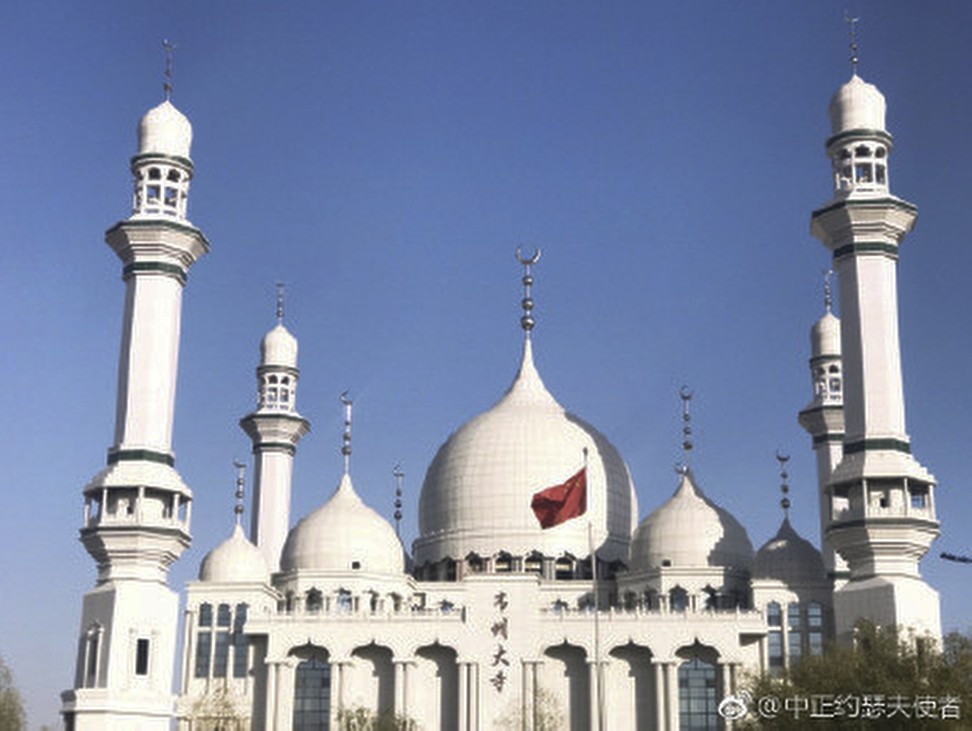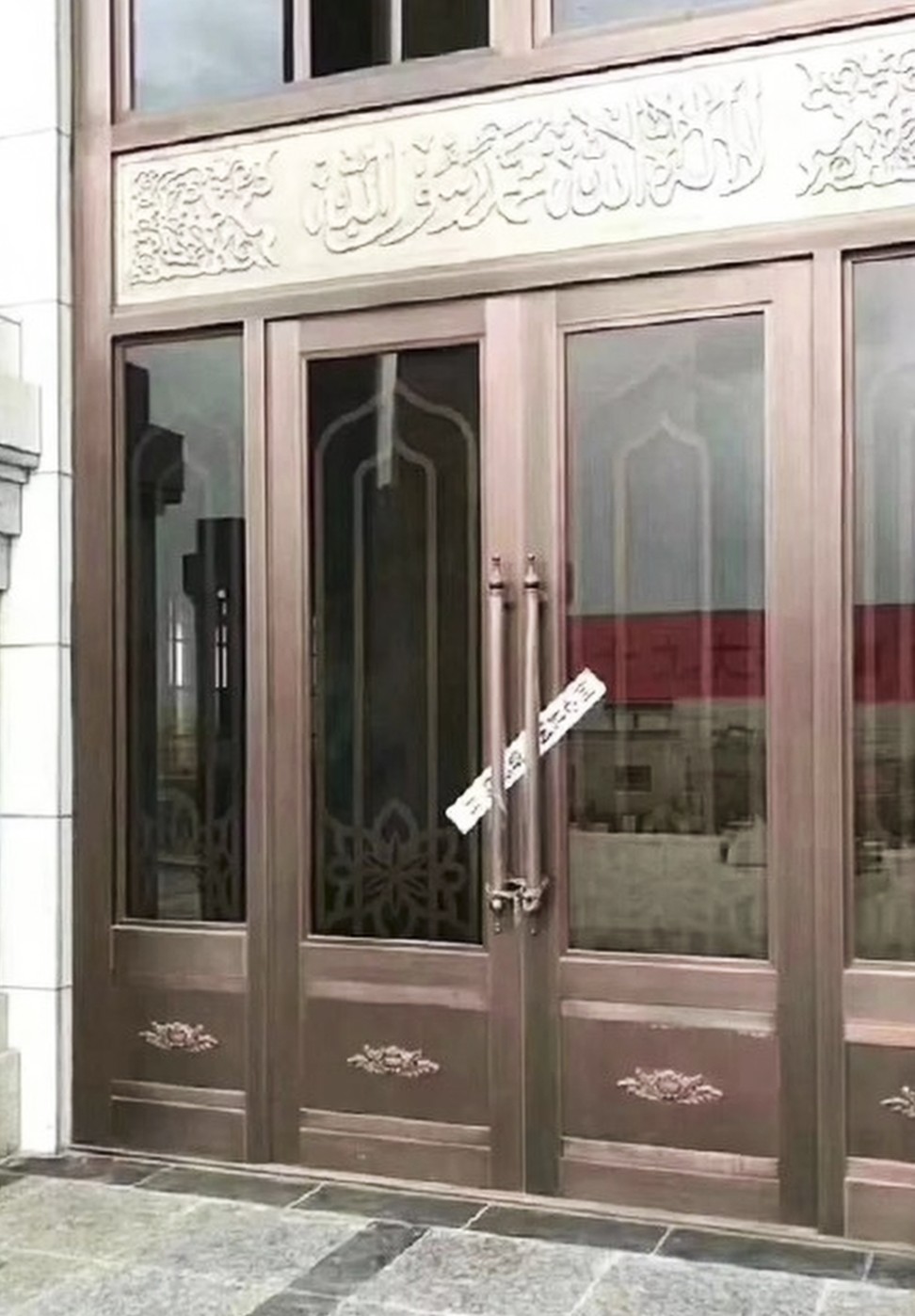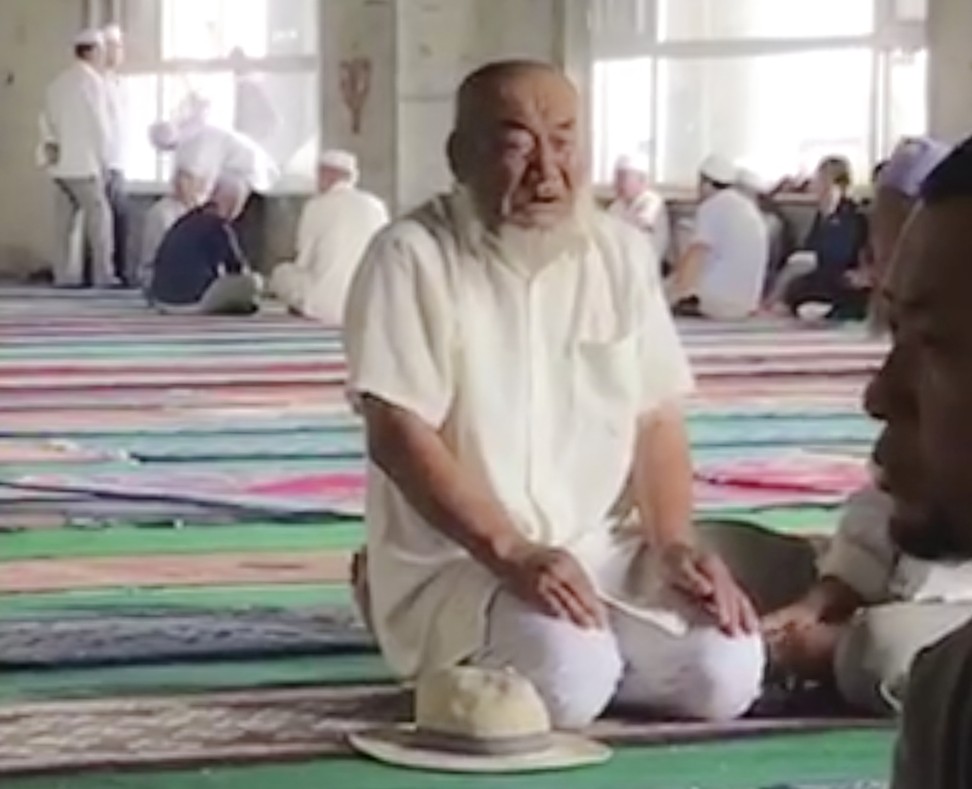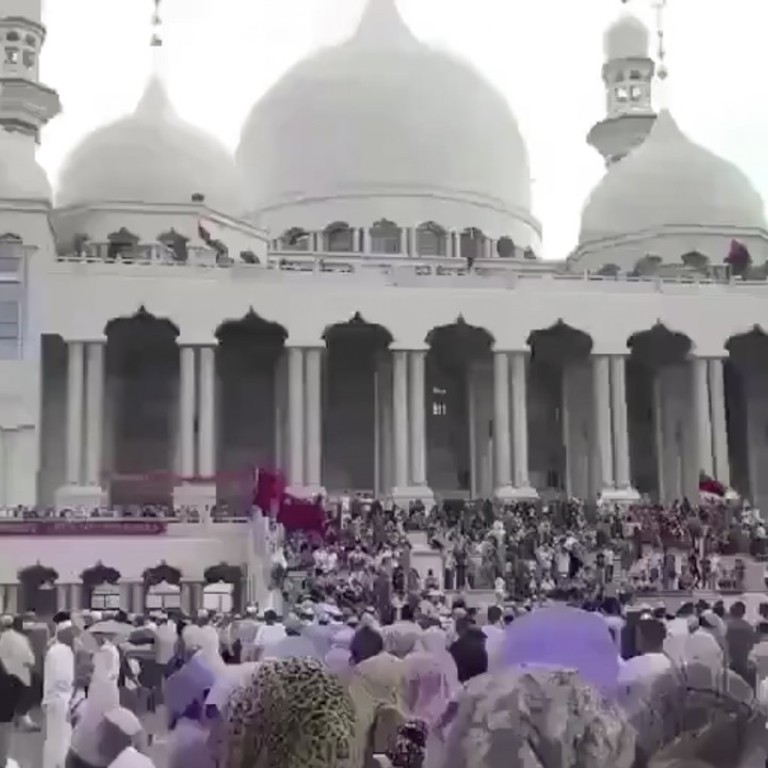
Developing | Chinese Hui Muslim protest forces authorities to halt plan to demolish Weizhou Grand Mosque
Officials say they will discuss reconstruction plan with locals after hundreds take to the streets in Ningxia region
Local authorities have been pushed to delay plans to demolish a new mosque in northwest China after a rare protest by hundreds of Muslims from the ethnic Hui group on Thursday.
The huge crowd gathered on Thursday and Friday in the square outside the Weizhou Grand Mosque, an imposing white structure topped with nine onion-shaped domes, crescent moons and four towering minarets, according to images seen online.
The local county head went to the mosque about midnight and urged everyone to go home. He promised that the government would not touch the mosque until a reconstruction plan had been agreed upon by the townsmen, according to local sources.
The stand-off in the town of Weizhou in Tongxin county, in the Ningxia Hui Autonomous Region, is the latest, and possibly largest, conflict in a recent campaign to rid the region of what Beijing regards as a worrying trend of Islamisation and Arabisation, as the ruling Communist Party doubles down to “Sinicise religion”.
According to a notice said to have been issued by the Weizhou government on August 3 and shared online, the mosque’s management committee had been given a deadline of Friday to demolish the building on the grounds it had not been granted the necessary planning and construction permits.
Making Islam invisible on the streets of China
If the management committee failed to comply, the government would “forcefully demolish it according to the law”, the notice said.
But a source close to the Ningxia government said that after days of negotiation between the authorities and religious leaders, it had been agreed earlier on Thursday that the government would not demolish the mosque, but remove eight of its domes.
The offices of the Tongxin Party committee and local government could not be reached for comment.
A Weizhou resident, whose name the South China Morning Post is withholding out of concern for his safety, said on Thursday that he had heard about the alternative plan, but that many Muslims did not want to see the domes removed.
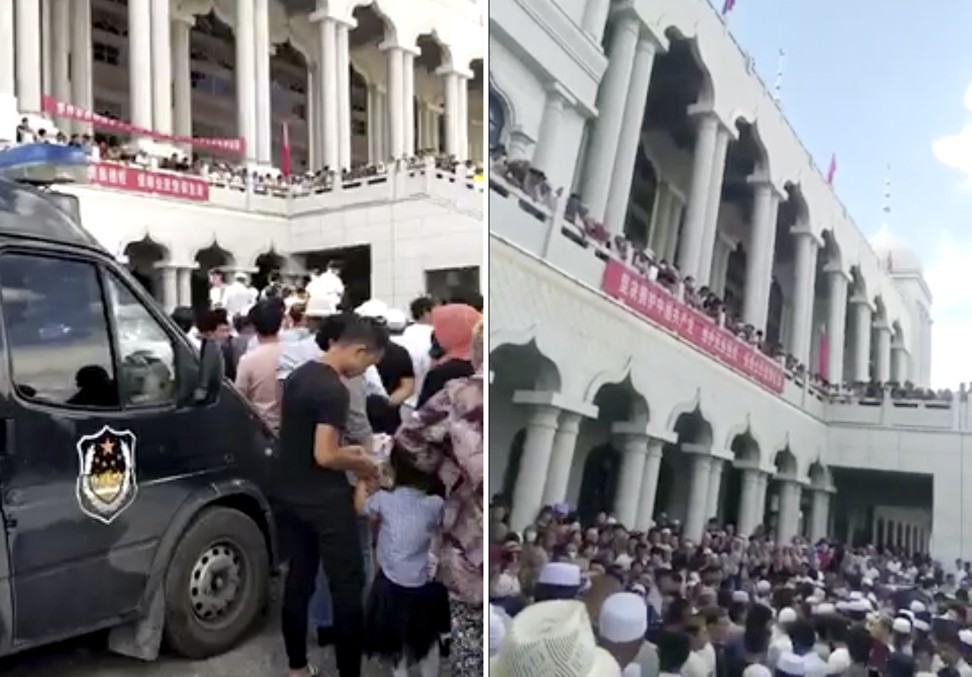
“Now we’re just in a stand-off,” he said. “The public won’t let the government touch the mosque, but the government is not backing down.”
Is China’s atheist Communist Party trying to eradicate Islam?
Construction of the new mosque was completed last year. It replaced an earlier one that, in turn, had been built to replace Weizhou’s 600-year-old Chinese-style mosque, which was destroyed during the Cultural Revolution along with thousands of other temples, churches and monasteries across the country.
The government’s order sparked an outcry in the Hui Muslim community, with many people questioning why the authorities did not stop construction of the mosque – which took two years to complete – if it had not been granted the necessary paperwork.
Video footage seen by the Post showed police vehicles parked in the square, while on the mosque more than 10 Chinese national flags fluttered in the wind.
Two red banners had also been strung from the mosque’s exterior walls, one of which read: “Resolutely support the Chinese Communist Party, defend ethnic unity, safeguard the freedom of faith”.
Despite the large numbers of people involved, the demonstration appeared to be peaceful, and the Post had not received any reports of violence as of Thursday evening.
Christian heartland on front lines of China’s campaign of suppression
The Weizhou resident said that many Hui believed it was not the intention of the Party’s central leadership to tear down their mosque.
“The local government is not implementing the central government’s policies,” he said.
Still, the Weizhou government’s move was most likely a response to the Communist Party’s call to “Sinicise religion” – a policy introduced by President Xi Jinping in 2015 and intended to bring religious groups in line with Chinese culture and the absolute authority of the party.
Replace pictures of Jesus with Xi to escape poverty, Chinese villagers urged
A visit to Ningxia by a Post reporter in April found that Islamic icons and Arabic signs had been removed from streets in towns and counties across the region. While secular buildings appeared to have been the first targets, at least two mosques had their domes removed earlier this year.
For decades, China’s Hui Muslims have been largely left in peace to practise their faith. Most of them speak Mandarin, and apart from the white caps and headscarves worn by the more traditional members of the ethnic group they are indistinguishable from the majority Han population.
But as the government deepens its crackdown on Uygurs – another mostly Muslim group in the western frontier of Xinjiang – the Hui are also being targeted.
Several mosques in Nigxia have been ordered to cancel public Arabic classes, while a number of private Arabic schools have been told to shut down.
Sexual harassment: Hong Kong churches face twofold problem
In 2012, hundreds of Hui clashed with police in Tongxin as they tried to stop their mosque from being demolished after it was declared illegal. Several protesters were reportedly killed in the violence and dozens more were injured.


